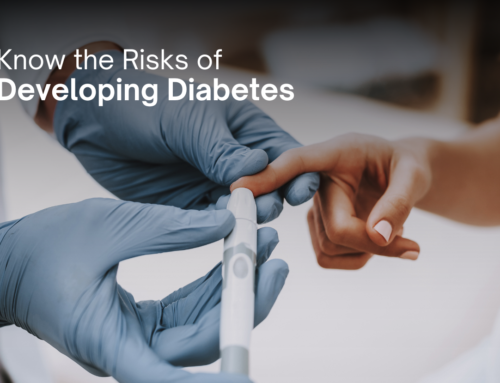February is designated as American Heart Month to advocate cardiovascular health and raise awareness about heart disease. American Heart Month is a wonderful opportunity to focus our attention on ways to promote and maintain heart health. In honor of American Heart Month, we take a look at some of the ways you can help improve your heart health. Even if you’re currently living with heart disease, there are many things you can do to improve your odds of living a long and healthful life.
What Is Heart Disease?
The phrases “heart disease” and “cardiovascular disease” are used interchangeably to describe the various conditions that affect your heart. Heart or cardiovascular diseases include blood vessel diseases, heart rhythm problems, and congenital heart defects. The most common form of heart disease in the United States is coronary artery disease (CAD), which occurs when the arteries that supply blood to the heart become hardened and narrowed due to a buildup of cholesterol, known as plaque. CAD can lead to health issues such as heart attack, heart failure, angina (chest pain), stroke, and irregular heartbeat.
Facts About Heart Disease
Heart disease can strike anyone, but certain individuals may be more at risk than others. Some of the most common risk factors for heart disease include:
- High blood pressure
- High cholesterol
- Diabetes
- Obesity
- Poor diet
- Inactive lifestyle
- Cigarette smoking
- Excessive alcohol consumption
Heart disease is still the main source of death in the United States. In fact, cardiovascular disease remains the leading cause of death in the world. And according to the Centers for Disease Control and Prevention (CDC), many of these deaths would have been preventable with proper preventative care.
Knowing The Symptoms Of Heart Disease
While there are several different forms of heart disease, they share common symptoms and warning signs. It’s important to learn these symptoms to receive a prompt diagnosis and medical treatment. Symptoms of an emergency may include:
- Chest pain, discomfort or an uncomfortable pressure in the chest
- Shortness of breath
- Pain in the upper body, arms, back, neck, jaw or upper stomach
- Feeling nauseous or vomiting
- Sweating; or cold sweats
- Weakness, light-headedness, feeling faint or dizzzy
- Feeling very full or having indigestion
- Fatigue or exhaustion
- An irregular heartbeat, palpitations, or increased heart rate
How You Can Help To Prevent Heart Disease
Risk factors often develop as you age; things such as high blood pressure and high cholesterol increase your chances of having a stroke or developing heart disease. Whether your senior loved ones live at home, in an assisted living community or at a nursing home, you can make healthy changes to lower the risk of developing heart disease. Likewise, controlling and preventing risk factors are that much more important if you already suffer from heart disease.
Heart-Healthy Habits For Seniors
It’s possible to reduce the risk for heart disease by making certain lifestyle changes, and managing medical conditions sooner rather than later.You can keep your heart healthy no matter how old you are, by making changes in your everyday habits. Here’s how to get started:
- Get enough exercise. Physical activity is one of the best ways to improve heart health.
- Quit smoking. If you’re still smoking, it’s time to quit.
- Eat a heart-healthy diet. Load up on fresh fruits and vegetables while limiting saturated fats, salt, and foods containing cholesterol, like fatty meats. A Mediterranean diet focuses on eating a diet rich in fresh fruit and vegetables, whole grains, nuts, and fish and seafood instead of red and processed meats.
- Watch your numbers. Get regular check-ups to monitor health conditions that affect the heart, including high blood pressure, high cholesterol, and diabetes, and make sure they’re under control with medication.
- Reduce your alcohol intake. Excess alcohol consumption can worsen health conditions that contribute to heart disease, such as high blood pressure, arrhythmias, and high cholesterol levels.
- Watch your weight. Maintain a healthy body weight for your size. Too many pounds can add up to increased heart disease risk.
- Get better sleep. It’s critical for seniors (and everyone) to have a good night’s sleep. Sleep is beneficial for brain functionality, metabolism, immune functionality and emotional well-being.
- Reduce stress factors. Take the time to find healthy outlets to relieve stress and lower your risk of heart disease.
With increased awareness, education and lifestyle changes, we can help more Americans live longer, fuller, healthier lives and be an advocate for healthy habits. American Heart Month should be used as a reminder to take care of your body and your health as you age, to reduce your risk of developing heart disease and other health conditions.





